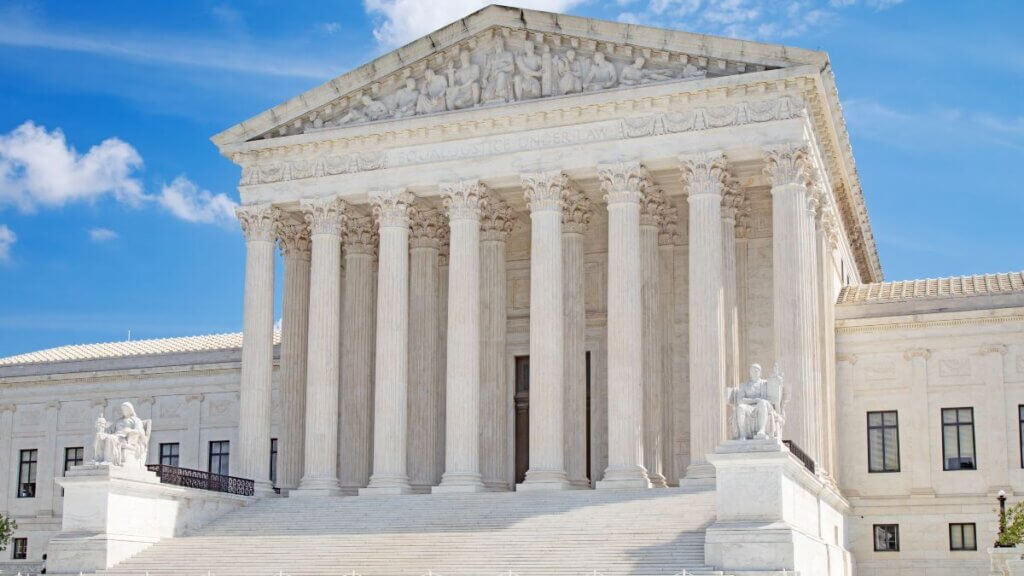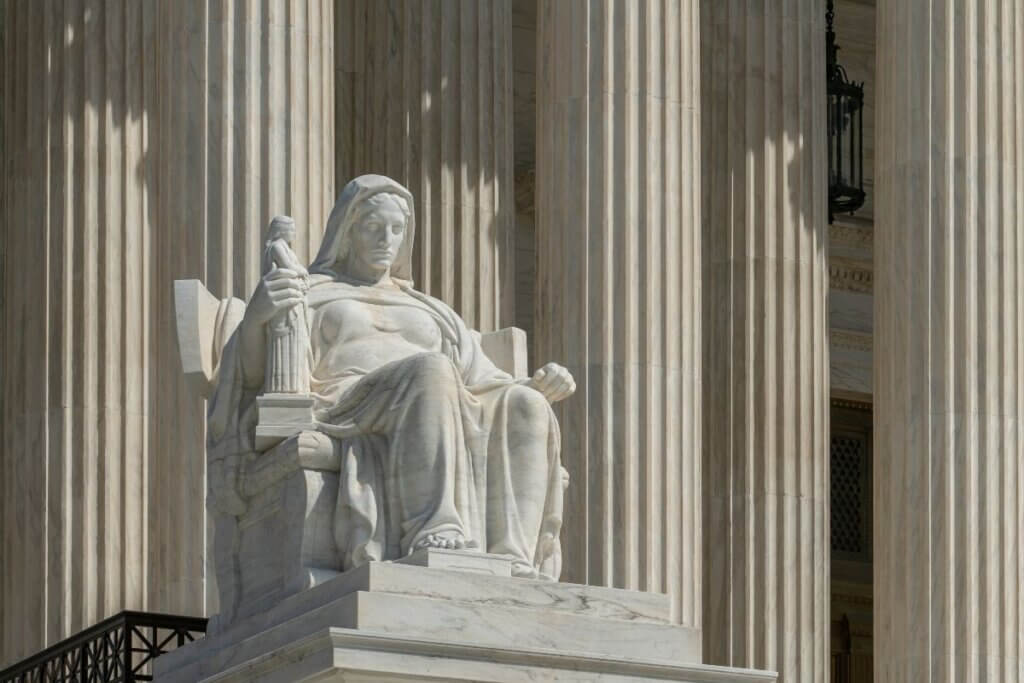Subscribe to receive featured episodes and staff favorites once a month.
Newsletter Signup
The most recent Supreme Court term was marked by a sustained challenge to the authority of administrative agencies, significant victories for former President Donald J. Trump, and conflicting signals on issues related to firearms and abortion, leading to a series of impactful decisions. Here are some of the most buzzworthy decisions and their far-reaching effects.
In Trump v. United States, the Supreme Court ruled that former President Donald J. Trump is partially immune from prosecution on charges related to allegedly plotting to overthrow the 2020 election. The justices remanded the case to the lower courts for further analysis, indicating that the president may be prosecuted for private conduct but not for official acts.
This decision is a significant declaration about the extent of presidential power. Its immediate effect will make the case against Trump for election subversion even more complex. Moreover, the likelihood of it going to trial before the election is increasingly slim, and at the very least, the charges against him are likely to be reduced.
“This will go down in history reading as a 6-3 opinion, but it was actually 5-4 because Justice Amy Coney Barrett actually did set out one of the key arguments, which is that you can’t criminally prosecute over official versus unofficial acts,” said Joe Patrice, an editor of Above the Law and co-host of Thinking Like a Lawyer.
“The five-justice majority went so far as to say that if the president were to do some unofficial criminal act, the prosecutors would not be allowed to use any evidence that’s connected with the President’s formal duties,” he continued. “If you, for instance, assassinated somebody, maybe that’s not legal, but all your communications with the Department of Defense about doing that would not be able to come before a jury.”
On June 28, 2024, the court issued a 6-3 ruling that reduced the authority of federal agencies. This decision overturned a fundamental 1984 precedent known as Chevron v. Natural Resources Defense Council. The Chevron ruling mandated that courts defer to agencies’ reasonable interpretations of unclear statutes.
In recent years, the Chevron ruling has been losing support at the Supreme Court, with several justices attacking it. The court has used Chevron at least 70 times to decide cases but has not done so since 2016. Consequently, the latest Supreme Court ruling could impact various regulations regarding the environment, government benefit programs, healthcare, consumer safety, nuclear energy, and guns. It also moves power from the agencies to judges and Congress.

In the case Harrington v. Purdue Pharma, the Supreme Court ruled that the Sackler family members could not be protected from civil lawsuits over their involvement in the opioid crisis as part of a bankruptcy settlement. This case is significant as it is the first time the Supreme Court has decided whether a bankruptcy plan could be designed to grant civil legal immunity to a third party without the agreement of all potential claimants. This legal tactic has become increasingly popular in bankruptcy settlements.
In “The Merits of Being a Little Reckless: How an Arts Lawyer Took on The Sackler Family,” Michael Quinn, a partner at Eisenberg & Baum, LLP, discusses his experiences representing clients in the fight against the Sackler family and Purdue Pharma.
His interest in the case was sparked when one of his trusted clients brought the Sackler family to his attention.
“I represented an artist named Nan Golden who, in 2018, after overcoming opioid dependency issue, read an article in The New Yorker by Patrick Radden Keefe about the family behind the Purdue Pharma opioid empire,” Quinn said. “Their names are plastered above every museum doorway throughout the world, and she thought, ‘How do I get the world to know that these people that we hold in such high esteem in the arts and cultural and education world are actually behind the opioid crisis?’”
In Culley v. Marshall, the Supreme Court ruled that the Due Process Clause requires a timely forfeiture hearing but does not require a separate preliminary hearing in civil forfeiture cases involving personal property.
In the case, two women had lent their cars to others, who were later arrested for drug offenses. The vehicles were then seized under an Alabama civil forfeiture law. The petitioners argued that their 14th Amendment rights had been violated due to the absence of a preliminary hearing.
In the Supreme Court decision, Justice Kavanagh stated, “In civil forfeiture cases, the Due Process Clause requires a timely forfeiture hearing, but does not require a separate preliminary hearing.”
To gain a better understanding of the issues discussed in Culley v. Marshall and the potential impact of this ruling, listen to “Civil Forfeiture in Culley V. Marshall.” In this episode, Lawyer 2 Lawyer host J. Craig Williams is joined by Attorney Kirby Thomas West from the Institute for Justice to get the full story.
To stay up-do-date on other Supreme Court rulings, add Legal Talk Network’s library of shows to your playlist on Apple Podcasts or Spotify. The shows Lawyer 2 Lawyer and Thinking Like a Lawyer are particularly keen on investigating the Supreme Court and informing you of the latest cases.
Legal Talk Network is a podcast network for legal professionals with hosts from well-known organizations and brands in legal. Over 20 active podcasts cover important legal news and developments, including access to justice, law school, industry events, legal technology, and the future of law.